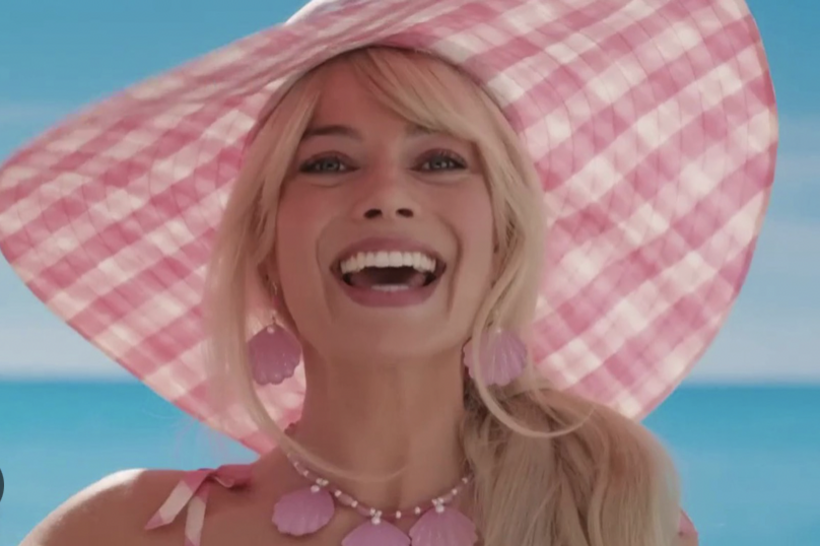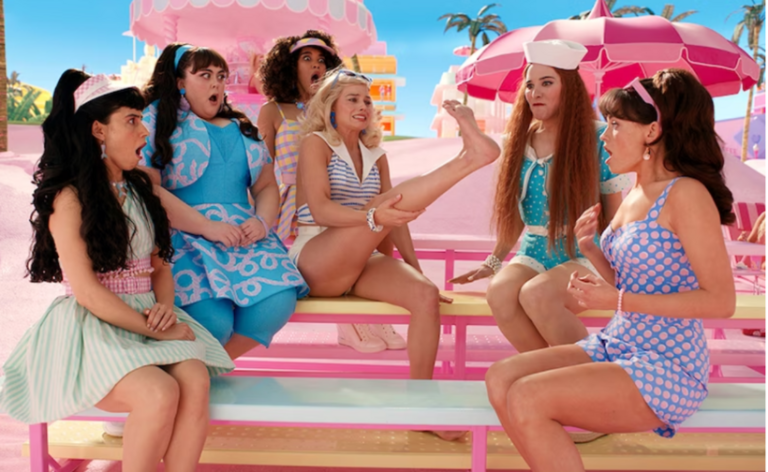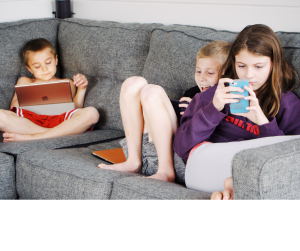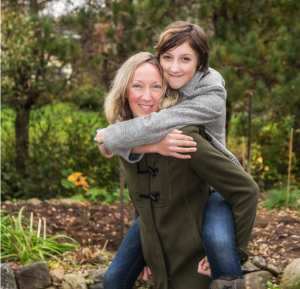
You’ve probably heard people talking about the Barbie film more times than you can count, and maybe you brushed it off as a marketing ploy. Truthfully, this is no ordinary film – it tells an important story that will resonate with mums and girls alike for years to come.
Sitting in the theatre, if you thought you signed up for some light-hearted comedic entertainment you will not be disappointed. But the film is so much more – it delves deep into the concepts of womanhood, puberty, coming of age, patriarchy and feminism. Whilst there is the odd adult theme, and you might decide your girls aren’t old enough to watch it yet (it’s rated 12A here in the UK, so largely up to parental discretion), for those in their teens, and mothers alike, it’s struck a chord certainly unlike anything seen in our lifetime.
The movie is a coming-of-age story unlike any other. In Barbie Land, everything seems perfect. The film is extremely self aware (it even names Margot Robbie ‘Stereotypical Barbie’ and comments that she was the wrong person to cast if we’re talking about crushing traditional beauty standards). When the perfect facade starts to falter, is when the questions start to appear. Previously ‘perfect’ looking, living the same ‘perfect’ morning every day, always happy – suddenly things start to change. Barbie’s milk is out of date, her hair looks dishevelled, she crashes to the floor instead of gracefully floating down from her roof (because, as the film says, “no one ever bothers to actually walk their Barbie down the stairs, do they?”). Not only this, but she develops “irrepressible thoughts of death”, and her body starts to undergo physical changes – her previously ‘perfect’ feet that fit elegantly into her heels, suddenly drop to the floor. She develops cellulite. Suddenly, life isn’t perfect anymore. Life becomes messy, and challenging, and full of difficult, big emotions. Unsettled, Barbie wonders if she might find answers to her problems in the Real World, a place she’s always known about but is newly curious to explore. But on arrival she is confronted with misogyny, objectification and grief. The Board of Directors at Mattel are all men, builders and even police officers make suggestive comments about her skintight outfit, and most interestingly – she experiences her first tears when her belief that Barbies were empowering for women is shattered
You can’t help but notice the parallels with a teenager coming of age. Going from the simple life where you ran around in primary school having fun with your friends and seeing who can eat the most Freddos at school discos – to suddenly going through all these changes. Becoming conscious – of yourself, of the male gaze, of teenage crushes, of the changes that puberty brings. You become interested in the exciting, grown-up world and you’re eager to go there, and be free. But often it’s not all it’s cracked up to be, and you might want to go back to how it was before, when you were young. But you can’t – so the question is, how can you grow into an adult, make adjustments for your changing body, but still be you, holding onto your childlike wonder, sense of innocence, and determination?

Barbie goes through not only a physical journey, but a mental and emotional one too. As she’s told in the film, “close your eyes, and just feel”. She learns to believe in herself, to trust her women’s intuition, and not shy away from emotions or showing vulnerability. It’s an important milestone in coming of age, and is much like the work we do in our Girls Journeying Together groups, where we encourage girls to learn to tune into their intuition and trust their instincts.
Ken is also changed by what he learns on his visit to the Real World, and he brings the idea of patriarchy back to Barbieland. In a world previously run by women, with men treated as supporting characters, Ken flips this on its head. Women, previously in respected positions, adopt roles we often see depicted in films, supporting the male leads. Until Barbie returns, working with Gloria (a mother from the Real World who works at Mattel) to figure out a way to wake everyone up from the spell.
Gloria gives a speech about how impossible it is to be a woman:
“You have to be thin, but not too thin. And you can never say you want to be thin. You have to say you want to be healthy, but also you have to be thin. You have to have money, but you can’t ask for money because that’s crass. You have to be a boss, but you can’t be mean. You have to lead, but you can’t squash other people’s ideas. You’re supposed to love being a mother, but don’t talk about your kids all the damn time. You have to be a career woman but also always be looking out for other people…”
Spoiler alert!
In the end, the Barbies and Kens decide on a feminist stance, that of equality between the sexes – and there’s a powerful conclusion about everyone creating their own identity. Barbie’s story ends with her forging her own path as a human in the real world, and going after what she really wants – rather than what is expected of her. It’s a powerful concept, to follow your heart no matter what others think, and one that our girls need to hear. It’s so important for girls to feel able to explore how they feel and what they want in life, as opposed to pleasing others and doing what they think they ‘should do’. We cultivate the safety for this exploration in Girls Journeying Together, and the girls’ feedback to us is that it’s hugely valuable to them.
Younger girls might enjoy Barbie for what it is on the surface – a lighthearted, tongue-in-cheek comedy with an upbeat soundtrack, gorgeous pink visuals, and energetic dance numbers. Some of the themes in Barbie are fairly complex, so if you’d like to explore them with your girl(s), here’s a few questions and talking points.
Questions for our girls
- Barbie talks about changes in women’s bodies as they get older, such as developing cellulite and her ‘feet dropping’ (a metaphor for her period starting perhaps) – did any of the changes that happened to Barbie surprise you? How do the changes that real girls’ bodies go through seem to you?
- Do you remember the scene where Barbie says to an older woman, “You’re so pretty”? What did you think of that? What does pretty mean to you? Are your friends pretty? When do you feel pretty?
- Have you ever heard the word patriarchy? Patriarchy describes a system where men hold the power and women are mostly excluded from having power. Where do you see this show up around you? In your school, who’s in charge, who is head of department, who are the leaders, men or women? How are the boys treated vs the girls? Are girls able to go to the toilet when they need to at school?
- Barbie learns to feel her ‘big feelings’ and openly cries several times – how do you feel about crying? When your big feelings come up, what do you do to manage these?
- What’s important to you? What pressures do you feel that push you in directions that you might not want to go? What helps you stay true to you?
And a question for you:
Finally, what did you think of the film? We’d love to hear your thoughts in the comments below. And if this post resonated with you and you know anyone else who cares about guiding our girls safely through puberty, feel free to share.
If you know a girl who might benefit from Girls Journeying Together or you’re inspired to facilitate these groups yourself so that you can impact girls’ lives on a daily basis, see the links below for more information about our work:
https://www.ritesforgirls.com/girls-journeying-together/



No comment yet, add your voice below!